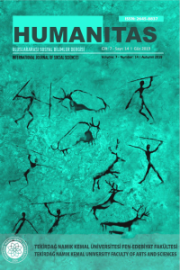GRAMMAR AND POWER IN WITTGENSTEIN AND FOUCAULT
GRAMMAR AND POWER IN WITTGENSTEIN AND FOUCAULT
Author(s): Yusuf ÖZSubject(s): Political Philosophy, Contemporary Philosophy, Marxism, Ontology
Published by: Namık Kemal Üniversitesi Fen-Edebiyat Fakültesi
Keywords: language games; Ludwig Wittgenstein; Michel Foucault; political philosophy; subjectivity;
Summary/Abstract: Foucault criticizes modern discourses on power such as Marxism, Freudianism, and liberalism in which power is understood as a repressive negative force that radiates from modern political institutions to the whole society from above. For him, modern power, with the involvement of the discourses of the humanities, sustains and maintains itself by producing subjectivities and the modern subject is simultaneously an object of knowledge and of domination. There are philosophically significant similarities between the ways Wittgenstein describes language games and grammar as formative elements of our sociality and Foucault’s understanding of power as a productive and dynamic grid of strategic formative relations. From this perspective, Peter Winch’s and David Bloor’s accounts of social constructive interpretations of Wittgenstein are analyzed and criticized, then a Wittgensteinian interpretation of the concepts of the crime and the criminal is presented on the basis of Arnold I. Davidson’s and Ian Hacking’s arguments on historical ontology.
Journal: Humanitas - Uluslararası Sosyal Bilimler Dergisi
- Issue Year: 7/2019
- Issue No: 14
- Page Range: 423-436
- Page Count: 14
- Language: English

